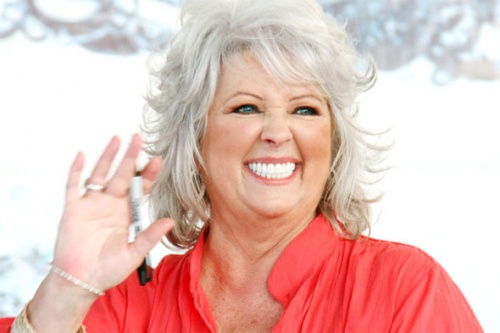
By now you may have heard the news that Paula Deen, reigning queen of Southern cuisine, has Type 2 Diabetes. Actually, she’s had the disease for the past three years, and chose to make the news public only recently after closing a deal with Novo Nordisk to be the spokeswoman for their drug, Victoza.
Articles have flooded the internet, and the backlash has been extreme. Paula claims she didn’t want to make this public until she had something to offer others in the same situation. But I have to wonder, is pushing a drug that only masks the problem the best use of her celebrity? Also, why hasn’t she been working to reverse the disease these past three years? It would have been far more powerful for her to announce that she privately beat the disease by changing her eating habits and lifestyle, and then emerged to show America how to do it by filming a healthy cooking show. Instead, she’s been hanging on by popping pills. This is a huge missed opportunity.
One of her “healthy” recipes was floating around the internet this week, and I have to say, I’m actually pretty disappointed. Paula Deen’s Healthy Chicken Recipe (via People)

Yes, when compared to her original recipe, I’m sure there is less sodium and fat, but it’s unfortunate that Paula still relies on processed foods like cream of mushroom soup and jarred mayonnaise. Albeit the “low sodium” soup and “light” mayonnaise, it’s still not as healthy as it could be. Processed foods are a large contributor to the health problems of this country, and the sooner people start removing them from their diets the better. I don’t always side with Anthony Bourdain’s snide remarks about people, but It turns out he was right when he called her “the most dangerous person in America” on Twitter last year.
Resources around the web:
Paula Deen: From Big Food to Big Pharma (Kristin Wartman)
Paula Deen: From Market to Pharmacy (Civil Eats)
Chef Has Diabetes and Some Say, ‘I Told You So‘ (New York Times)
Of Mouselike Bites and Marathons (Frank Bruni, New York Times)